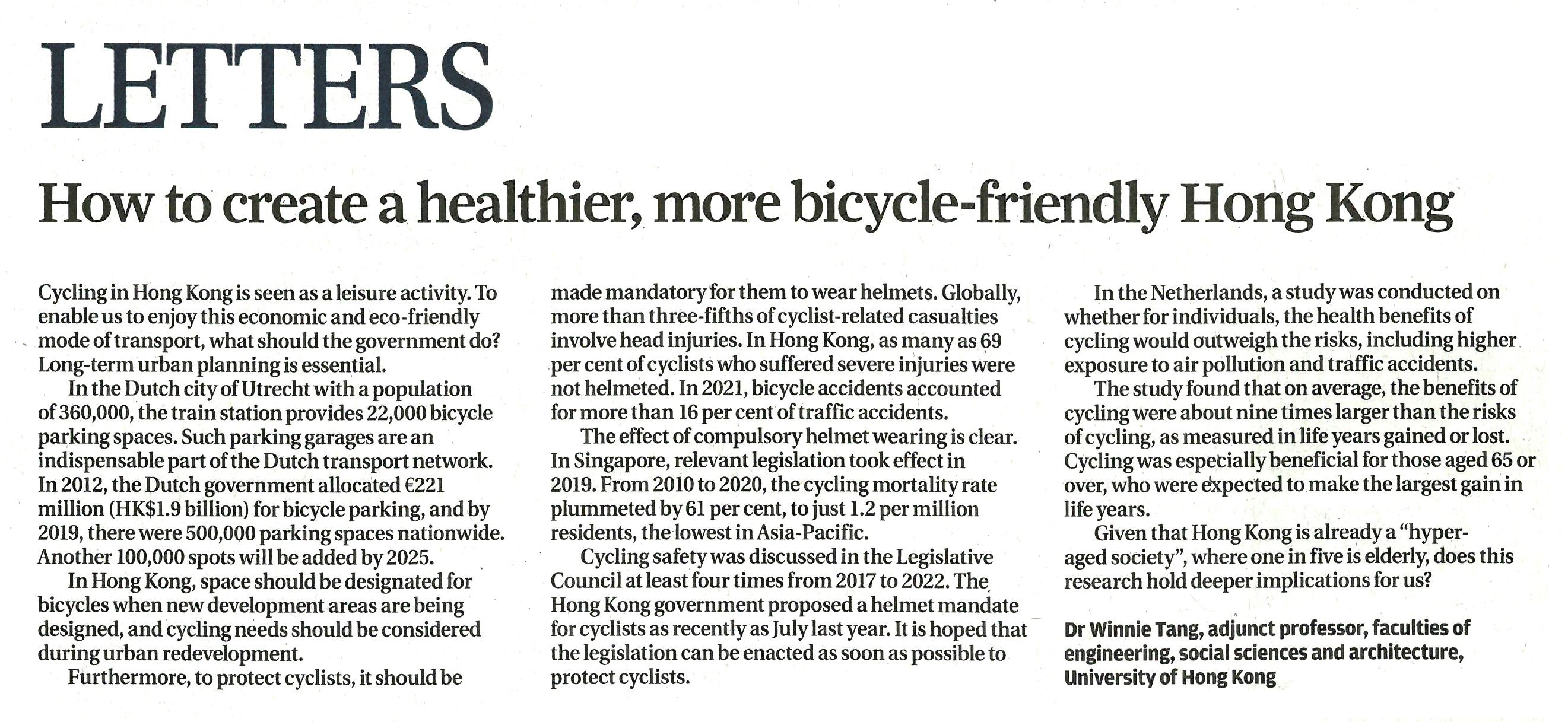網上版請按此

How to create a healthier, more bicycle-friendly Hong Kong
Cycling in Hong Kong is seen as a leisure activity. To enable us to enjoy this economic and eco-friendly mode of transport, what should the government do? Long-term urban planning is essential.
In the Dutch city of Utrecht with a population of 360,000, the train station provides 22,000 bicycle parking spaces. Such parking garages are an indispensable part of the Dutch transport network. In 2012, the Dutch government allocated 221 million (HK$1.9 billion) for bicycle parking, and by 2019, there were 500,000 parking spaces nationwide. Another 100,000 spots will be added by 2025.
In Hong Kong, space should be designated for bicycles when new development areas are being designed, and cycling needs should be considered during urban redevelopment.
Furthermore, to protect cyclists, it should be made mandatory for them to wear helmets. Globally, more than three-fifths of cyclist-related casualties involve head injuries. In Hong Kong, as many as 69 per cent of cyclists who suffered severe injuries were not helmeted. In 2021, bicycle accidents accounted for more than 16 per cent of traffic accidents.
The effect of compulsory helmet wearing is clear. In Singapore, relevant legislation took effect in 2019. From 2010 to 2020, the cycling mortality rate plummeted by 61 per cent, to just 1.2 per million residents, the lowest in Asia-Pacific.
Cycling safety was discussed in the Legislative Council at least four times from 2017 to 2022. The Hong Kong government proposed a helmet mandate for cyclists as recently as July last year. It is hoped that the legislation can be enacted as soon as possible to protect cyclists.
In the Netherlands, a study was conducted on whether for individuals, the health benefits of cycling would outweigh the risks, including higher exposure to air pollution and traffic accidents.
The study found that on average, the benefits of cycling were about nine times larger than the risks of cycling, as measured in life years gained or lost. Cycling was especially beneficial for those aged 65 or over, who were expected to make the largest gain in life years.
Given that Hong Kong is already a "hyper-aged society", where one in five is elderly, does this research hold deeper implications for us?
Dr. Winnie Tang
Adjunct Professor, Department of Computer Science, Faculty of Engineering; Department of Geography, Faculty of Social Sciences; and Faculty of Architecture, The University of Hong Kong